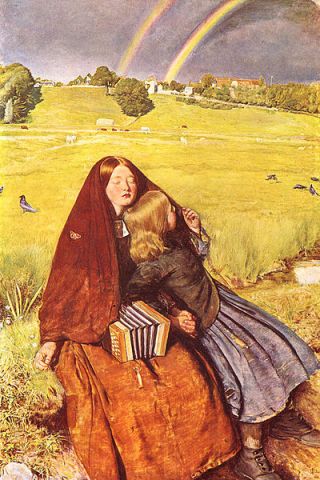Grief
The Power of Silence and Healing
Children seem to know better than adults the power of silence
Posted September 13, 2013

In a world filled with bugles and noise, we sometimes forget the power of silence. The simplicity of merely being with another is in itself a source of comfort. As May Sarton writes, "Sometimes silence is the greatest sign of understanding and respect. It is far more consoling than words of false comfort."
Children seem to know this better than adults. A story is told about a girl who went to visit the home of a neighbor where her little friend had died. When she returned, her father asked her why she went.
"To comfort her mother," she told him. The father was incredulous and asked her what she could have done to console a woman who had suffered such a terrible loss.
"I climbed onto her lap and cried with her," she said.
Rational appeals, sympathetic words or clichés could not have done as much as this innocent act. Whereas many adults think that they have to say the right word or try to distract the bereaved from thoughts of the departed, the girl knew that there was nothing that could be said.
But that didn't mean that nothing could be done. Sitting on the mother's lap didn't lessen the pain; it may have added to it. But it was an expression of caring and concern, a reaching out from the heart, a gesture of hope. It symbolized the continuation of life but did not diminish the anguish.
The girl was right: grief genuinely shared is an important means of healing.


